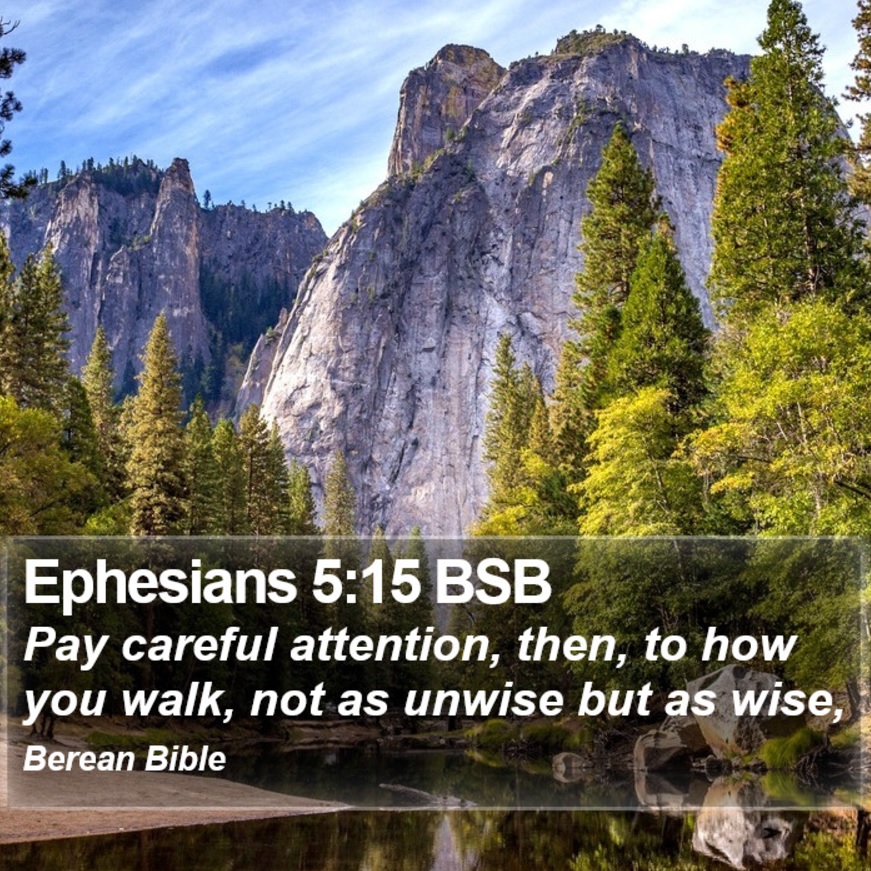“Go therefore and make disciples of all the nations…teaching them to observe all that I commanded you; and lo, I am with you always, even to the end of the age” (Matthew 28:19-20, NASB).
——————–
Contents:
1) Did Christ Die In Vain? (Jady W. Copeland)
——————–

-1-
Did Christ Die In Vain?
Jady W. Copeland
The death of Christ is one of the most touching scenes in history. He was innocent, pure in heart and in life, and died for crimes He did not commit. No greater injustice could be imagined. Innocent men have died before and since because of imperfect laws and judgments by men, but Jesus died even though He had not sinned, and no “guile was found in His mouth” (1 Pet. 2:22). Tears well up in our eyes when we see children mistreated or a young girl is reported to have been raped, but when you think of the innocence of Jesus and His prayer in Gethsemane along with the agony He was undergoing because of the sins of the world, it is worse. Yet it was all necessary for the remission of our sins. The death of Christ is connected with salvation of men. The Hebrew writer said, “But we behold him who hath been made a little lower than the angels, even Jesus, because of the suffering of death crowned with glory and honor, that by the grace of God he should taste death for every man” (Heb. 2:9). Peter said, “Because Christ also suffered for sins once, the righteous for the unrighteous, that he might bring us to God; being put to death in the flesh, but made alive in the spirit” (1 Pet. 3:18). While we may not understand many injustices in this life, we know that the suffering of Christ, the agony on the cross, and the mental and physical pain endured by our Savior before the cross was necessary that God’s highest creation may be saved from sin. There could have been no other reason for such suffering and pain!
But to many, Christ died in vain! So far as many in the world are concerned there was no reason at all for Christ dying and suffering as He did. Let us look at some of these whose lives and doctrine tell us that Christ died in vain.
He Did If He Was Not Raised
What good would the sacrifice have been had not He been raised? Our final resurrection from the dead depends on His resurrection (1 Cor. 15:12-14). Paul poses the question that if one admits that Christ is raised why should they deny that all will be raised? But furthermore (on the other hand) if there is no resurrection, then why would they argue that Christ has been raised? So our resurrection depends on His resurrection. And if there is no resurrection, then His death is in vain. His death was necessary only if He was going to be raised from the dead. Truly, He was “raised for our justification” (Rom. 4:25). But if He was not raised the apostles were false witnesses (1 Cor. 15:15). Yet there are many who deny the resurrection. The resurrection is the very apex of His miracles and if we can believe this, the other miracles are not hard to believe. Why would some think the death of Christ is important and deny the resurrection?
He Died In Vain If The Law Of Moses Is Binding
Very few people in the religious world understand (evidently) the relationship between Moses’ law and the gospel of Christ. Almost universally they try to follow both. This has been a problem from the beginning of the gospel’s advent into the world by Christ and His apostles and in looking at the history of religion in America we can see it constantly remains. Alexander Campbell’s great “Sermon On The Law” which was preached at the annual meeting in 1816 of the Redstone Association of Pennsylvania when another speaker became ill received so much opposition that it led to his withdrawal from the association. And today, ask nearly any person (preacher or otherwise) and they will tell you that the Ten Commandments of the Law of Moses is applicable to all today. Possibly we do not spend enough time on this issue in converting people in our personal work classes or sermons.
In dealing with the false teachings of that time, Paul in his letter to the Galatians dealt with this issue. It continued to be a problem in the Jew-Gentile relationship (chapter two). In Galatians 2:21 he says, “I do not make void the grace of God: for if righteousness is through the law, then Christ died in vain.” Judaizing teachers insisted on keeping the law (Gal. 1:6-7). But Paul says that no flesh (Jew or Gentile) is justified (made right) by the law (Gal. 2:16). They had not received the Spirit by the hearing of the law, but by the gospel (Gal. 3:1-3). Christ redeemed all from the law for it was a curse to all who would continue to follow its precepts (Gal. 3:13). The Gentiles were not included in the law, and if the law could save, then the Gentiles would not have access to salvation (Gal. 3:14). The law was only added until the seed (Christ) came (Gal. 3:15-22) but now all are saved by Christ and His gospel, not by the law. But righteousness did not come by the law, but “a righteousness of God hath been manifested, being witnessed by the law and the prophets; even the righteousness of God through faith in Jesus Christ unto all them that believe, for there is no distinction” (Rom. 3:21-22). Finally, Paul said, “Ye are severed from Christ, ye who would be justified by the law; ye are fallen away from grace” (Gal. 5:4). One purpose of the coming of Christ was to take away the law and make possible a way of redemption through His blood. The blood of bulls and goats could not take away sin so Jesus had to come and make that sacrifice. So the truth remains that if one can be saved by the law of Moses, Christ died in vain.
He Died In Vain If Morality Alone Saves
A large number of people believe that the death of Christ is unnecessary for they believe that they will not be lost if they live a moral life. It is rather a negative approach to salvation. Why should I be condemned if I haven’t done anything “that bad”? “I am a good person, and why should the Lord condemn me to hell?” it is said. But unless one says he has never sinned, then he must admit that he needs the blood (the death) of Christ, for only in the blood of Christ can one be saved (Eph. 1:7). Furthermore this admits that I can “merit” salvation, which the Bible teaches can never happen. It seems that some of the brethren are having a hard time seeing the difference in accepting God’s gift conditionally and meriting salvation. The fact that I must obey Christ to accept His gift is not to say that I merit or deserve salvation. But if God must save me because I am good then we must be saying that salvation depends on goodness of man. And if I am good, then God has to save me.
Let us look at it this way. There are only two possibilities regarding me and sin. Either I have or have not sinned, one of the two. All have sinned (Rom. 3:23; 1 Jno. 1:10). Now since all have sinned, there are only two dispositions that God can make of sin. First, sin must be punished, so God can take care of that for “the wages of sin is death” (Rom. 6:23). God cannot overlook sin and be true to His nature. Sin cannot go unpunished. So there is only one other thing that can be done. Since we have sinned we must either take the consequences or be forgiven of sin by the God of heaven. This is done through the blood (death) of Christ and Peter calls this redemption by the blood. We are not redeemed by material things “but with the precious blood of Christ, as of a lamb without blemish and without spot” (I Pet. 1:18-19). We are “loosed” by His blood (Rev. 1:5). This is the reason Paul says we must be “baptized into His death” since it was in His death that the blood was shed (Rom. 6:3) as that is the only way we can appropriate the blood to our sins. When one is baptized into the death of Christ, he is washed in the blood. When one is baptized into Christ his sins are forgiven (Acts 2:38). When one is baptized into Christ, he “puts on Christ” (Gal. 3:27). When one is baptized into Christ, he is a child of God. How can one possibly say one need not be baptized into Christ when all these blessings come as a result of baptism? One cannot be saved by “morality alone” for there is nothing in this to take away sins. And since all have sinned, there must be a cleansing agent – blood.
He Died In Vain If One Can Be Saved Outside The Church
This statement sounds so unnecessary since the saved are the church. We are “reconciled in one body,” which is the church (Eph. 2:16). But the same writer says the Lord is “head over all things to the church, which is His body” (Eph. 1:22-23). If we are reconciled (made friends again) in Christ, then how can one be saved if he is not in Christ? But Paul said in Colossians 1:21-22, “And you, who once were alienated and enemies in your mind by wicked works, yet now He has reconciled in the body of His flesh through death (Emp. mine, JWC), to present you holy . . .” So we note that reconciliation unto God hinges on the death of Christ. If we can be saved outside of the realm of salvation (the church), then His death (which purchased the church, Acts 20:28) is unnecessary. It was through the mercy and loving kindness of God that Noah and his family were saved from the flood. Yet they had to build the ark (by faith) in order to be saved. It was inside of God’s providential care and planning that these people were saved by faith. The ark was necessary. It was God’s plan for their salvation. Through the cleansing power of Christ’s blood, salvation is made possible to mankind. When saved from sins (when God forgives), the people were called the church (Acts 2:47). It is a total misunderstanding of the way of salvation when men speak of being saved “outside of the church” for the saved compose the church. The church is nothing more or less than a group of saved people.
Christ Died In Vain If We Don’t Avail Ourselves Of His Power
Christ became the way of salvation to those who obey Him (Heb. 5:8-9). Polio vaccine will prevent this disease only if taken. It has the power to wipe out polio, but it will not prevent a single case if not applied. The same is true with the saving power of Christ. As long as one is not “baptized into His death,” it will not save. It was bad to have children and adults die of polio before there was a means of prevention; it seems worse in a way to know that some die of that dread disease when there is a cure. How terrible to think of millions dying where there is a cure for our sin-sickness. His blood will save from sin – but only if applied.
— Via Guardian of Truth XXVII: 13, pp. 387, 389-390, July 7, 1983
https://www.truthmagazine.com/archives/volume27/GOT027180.html
——————–
The Steps That Lead to Eternal Salvation
1) Hear the gospel — for that is how faith comes (Rom. 10:17; John 20:30-31).
2) Believe in the deity of Jesus Christ, the Son of God (John 8:24; John 3:18).
3) Repent of sins. For every accountable person has sinned (Romans 3:23; Romans 3:10), which causes one to be spiritually dead (Ephesians 2:1) and separated from God (Isaiah 59:1-2; Romans 6:23). Therefore, repentance of sin is necessary (Luke 13:5; Acts 17:30). For whether the sin seems great or small, there will still be the same penalty for either (Matt. 12:36-37; 2 Cor. 5:10) — and even for a lie (Rev. 21:8).
4) Confess faith in Christ (Rom. 10:9-10; Acts 8:36-38).
5) Be baptized in water for the remission of sins (Mark 16:16; Acts 2:38; 22:16; 1 Pet. 3:21). This is the final step that puts one into Christ (Gal. 3:26-27). For from that baptism, one is then raised as a new creature (2 Cor. 5:17), having all sins forgiven and beginning a new life as a Christian (Rom. 6:3-4). For the one being baptized does so “through faith in the working of God” (Col. 2:12). In other words, believing that God will keep His word and forgive after one submits to these necessary steps. And now as a Christian, we then need to…
6) Continue in the faith by living for the Lord; for, if not, salvation can be lost (Matt. 24:13; Heb. 10:36-39; Rev. 2:10; 2 Pet. 2:20-22).
——————–
Tebeau Street
CHURCH OF CHRIST
1402 Tebeau Street, Waycross, GA 31501
Sunday: 9 a.m. Bible Classes and 10 a.m. Worship Service. Congregational Song Service: 5 p.m. for every first Sunday of the month.
Wednesday: 7 p.m. Bible Classes
evangelist/editor: Tom Edwards (912) 281-9917
Tom@ThomasTEdwards.com
https://thomastedwards.com/go/all.htm (This is a link to the older version of the Gospel Observer website, but with bulletins going back to March 4, 1990.)


















